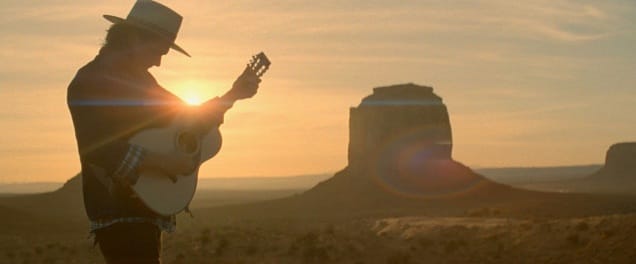John Mayer — One of Today’s Best Country Artists

You may not think about him as much as you used to. I don’t hear his music on the radio anymore and he seems to have fallen out of the public eye. He doesn’t seem to fit in the same category as Zac Brown, Sam Hunt or Luke Brian. All of that being said, I can still argue that John Mayer is one of today’s best country/western artists.
While his genre shifts may not swing as far as others in his industry (think The Beatles, or see The Color Spectrum by The Dear Hunter), he is definitely not the artist now that he was when his debut, Room For Squares, was released in 2001.

His first record, a solid if somewhat generic representation of early 2000s adult alternative acoustic and pop rock, featured his first big hit “Your Body Is a Wonderland.” It also contained a relatively unknown track, “Neon,” which I think better represents his ability as a guitarist. The main riff playfully ascends and quickly jumps to fit in the chord progression just in time.
From there, we got Heavier Things in 2003, another decent alternative album that got Mayer on the radio once again with “Daughters.” Again, if you ask me, a better song on that CD was “Clarity.” It has a great chord progression at the chorus and his use of the piano really helps to fill out the sound of the intro track.
It wouldn’t be until 2006 that John Mayer would truly write something robust, something bold. Continuum was, if you’re around my age, an album that many people knew front to back. It was here where he developed a sound that meshed alternative, pop, rock, blues, and even some funk that produced several radio hits. Songs like “Gravity”, “The Heart of Life”, “Slow Dancing in a Burning Room”, and “I’m Gonna Find Another You” are — to me — the quintessential John Mayer sound.
2009’s Battle Studies felt like a spiritual successor to Continuum. It was what Chronicles of Riddick was to Pitch Black: good, but didn’t bring anything fresh to the table. It wouldn’t be until 2012 that we’d get our first John Mayer “country” album.
Born and Raised opens with “Queen of California.” Beautiful acoustic work and a mimicked steel guitar sound makes this introduction very interesting. The next track, “The Age of Worry,” confirms our suspicions: Mayer has blended the folk, country, and western genres in a subtle and middle-of-the-road fashion to give us a fresh and crisp sound. Throughout the rest of the record he revisits his past sound with “Something Like Olivia” and “Love Is a Verb.” But we also hear classic country themes with “Whiskey, Whiskey, Whiskey” and “A Face to Call Home.” The album finishes with a reprise of the title track that reminds you of this shift in sound for Mayer.
Paradise Valley feels like a sequel to Born and Raised. It’s one those rare sequels that outdoes its predecessor, like Empire Strikes Back to A New Hope, or 22 Jump Street to 21 Jump Street.
Mayer really perfects his country/western/folk blend here. The country influences couldn’t be more obvious than in “You’re No One ’Til Someone Lets You Down.” Real steel guitars float above the melody while soft drums do nothing more than keep the rhythm. The lyrics are deceptively simple and discuss a subject which country music has always excelled at describing: heartbreak. Folk songs “Wildfire” and “On the Way Home” bookend this record, making it my favorite of his thus far.

His latest record is being released in waves. As of this writing, two parts, containing four songs each, have dropped. The last song of the second wave was what inspired this piece. “Roll It On Home” revisits this unique mix of genres with arching steel guitars, light drumming, country themes updated for a modern time, and something vaguely folk-y (bear in mind I’m not a professional music critic).
The current country music scene is flooded with pop country artists cranking out fairly generic songs that all sound eerily similar. And while I’ll concede that John Mayer isn’t strictly speaking a “country artist,” his exploration of the genre is fresh and unique. While most country songs are taking cues from pop music, Mayer’s tracks are uncharacteristically pop-less. His mix unites classic country themes with modern lyrics, and incorporates folk for something light and clean.